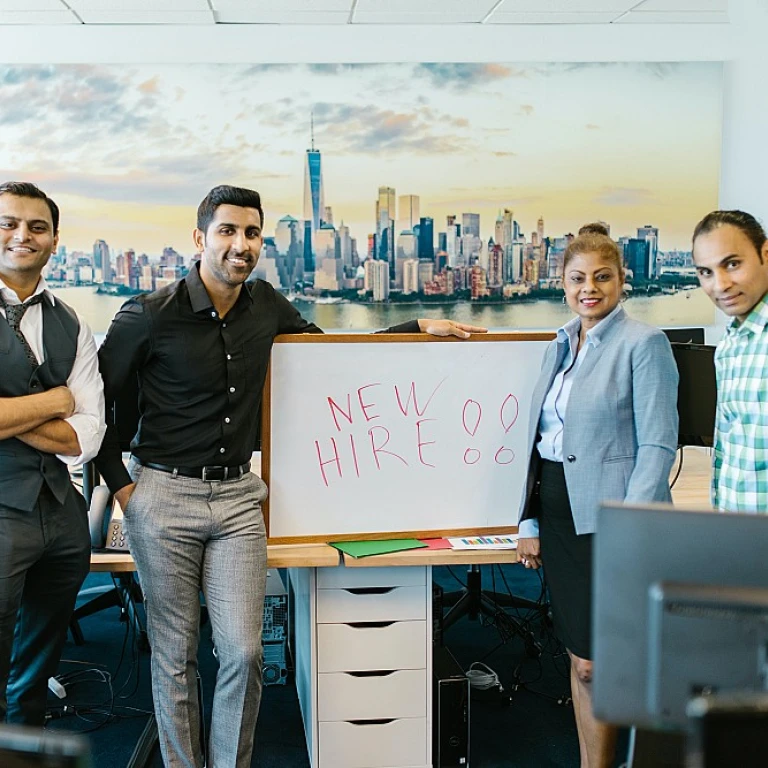
Understanding Background Checks
Unveiling the Basics of Background Checks
In the modern hiring landscape, background checks have become a staple in the recruitment process. Employers often use these screenings to ensure that prospective candidates align with their organizational values and standards. As part of a comprehensive verification procedure, background checks play a pivotal role in determining a candidate's qualifications and suitability for a particular role.
One of the key aspects that stands out in this process is the verification of employment history. Employers are keen to confirm the authenticity of the details provided on a candidate's resume. This involves checking past job titles, duration of employment, and even the nature of work performed. By doing so, employers can cross-verify the information given by candidates, ensuring they have the right skills and experiences for the job at hand.
Aside from employment verification, a background screening may also encompass checks on social media profiles, criminal records, and credit reports. Each component serves to provide a holistic view of the candidate, ensuring that there are no discrepancies or red flags in their professional or personal record. For more insights on efficient workforce management tools in the hiring process, you can read about the impact of UCSD Kronos.
The utility of these checks, however, is dependent on their accuracy and the limitations inherent in the data collected. As we delve deeper, we'll explore how these factors can impact job seekers and examine what considerations employers need to keep in mind during the hiring process.
Employment History in Background Checks
Uncovering Employment History: The Core of Background Checks
Understanding how background checks can reveal a candidate's work history is essential for both employers and job seekers. Employment background checks are designed to provide employers with a clearer picture of a candidate's prior work experience, helping to verify the authenticity of the details provided in their resumes. In a typical background screening process, employers look for verification of job titles, duration of employment, and sometimes the reasons for leaving previous positions. These checks aim to confirm a candidate's career trajectory and ensure alignment with the job specifications of the position they are applying for. Employment history verification involves:- Checking past job titles and responsibilities
- Confirming employment dates
- Cross-referencing reasons for leaving previous roles (when possible)
Accuracy and Limitations
The Reliability Factor in Background Checks
When employers initiate a background check during the hiring process, they often rely on various records to verify a candidate's employment history. This process primarily involves employment verification and the examination of employment background, which seeks to validate the job titles and work history claimed by the candidate. However, the accuracy of these checks can vary. Employment history checks often depend on the data obtained from previous employers and credit reporting agencies. While employment verification aims to provide clarity, discrepancies can arise due to outdated information or errors in reporting. For example, a candidate might have switched job titles within the same company or there could be inaccuracies in record-keeping practices. Moreover, the limitations of background screening are evident in the reliance on credit reports. Although these reports can reveal some employment details, they are primarily designed for assessing financial credibility rather than providing comprehensive employment histories. Some background checks also delve into criminal records, which might not directly relate to a candidate’s past work experiences but can impact perceptions of reliability and trustworthiness. Beyond these traditional methods, social media checks are increasingly being considered to capture a candidate’s professional activities and conduct. However, the accuracy and privacy concerns associated with such checks can raise ethical questions. For employers, it's crucial to acknowledge these limitations and approach the screening process with a fair credit perspective. Adopting a comprehensive and balanced record check approach will ensure that both criminal history and work history are verified in accordance with best practices. Leveraging modern HR technology to streamline the verification process can significantly reduce errors and enhance the reliability of background checks. For further insight into modern tools, exploring the streamlining payroll processes with modern technology can offer invaluable strategies.Impact on Job Seekers
How Job Seekers are Affected by Background Checks
The hiring process can be daunting, and for job seekers, the mention of background checks often adds to the stress. When employers conduct a background check, they're typically looking to verify information provided by candidates and to ensure there's nothing in their records that might raise a red flag. For many candidates, the thought of a thorough review of their employment history, criminal records, and credit reporting can be intimidating. It's important to understand how these checks are conducted and how job seekers can prepare themselves:- Verification of Information: Employers use checks to confirm that the details on a resume or job application are accurate. This includes employment history, job titles, and educational qualifications. If discrepancies arise, it might lead to questions about the candidate's credibility.
- Criminal Record Considerations: Although the presence of a criminal record doesn't automatically disqualify a candidate, many job seekers worry about its impact. Employers generally evaluate the nature of the offense in relation to the job being applied for.
- Fair Credit Reporting Act: This act ensures that background screening remains fair and transparent. Candidates should be informed and give consent before a background check is conducted. Furthermore, they have the right to dispute incorrect information found during the check process.
- Social Media and Additional Checks: In some cases, employers may extend their background checks to include a candidate's online presence. It's crucial for job seekers to be aware of their online activity and to maintain a professional appearance on social media platforms.













